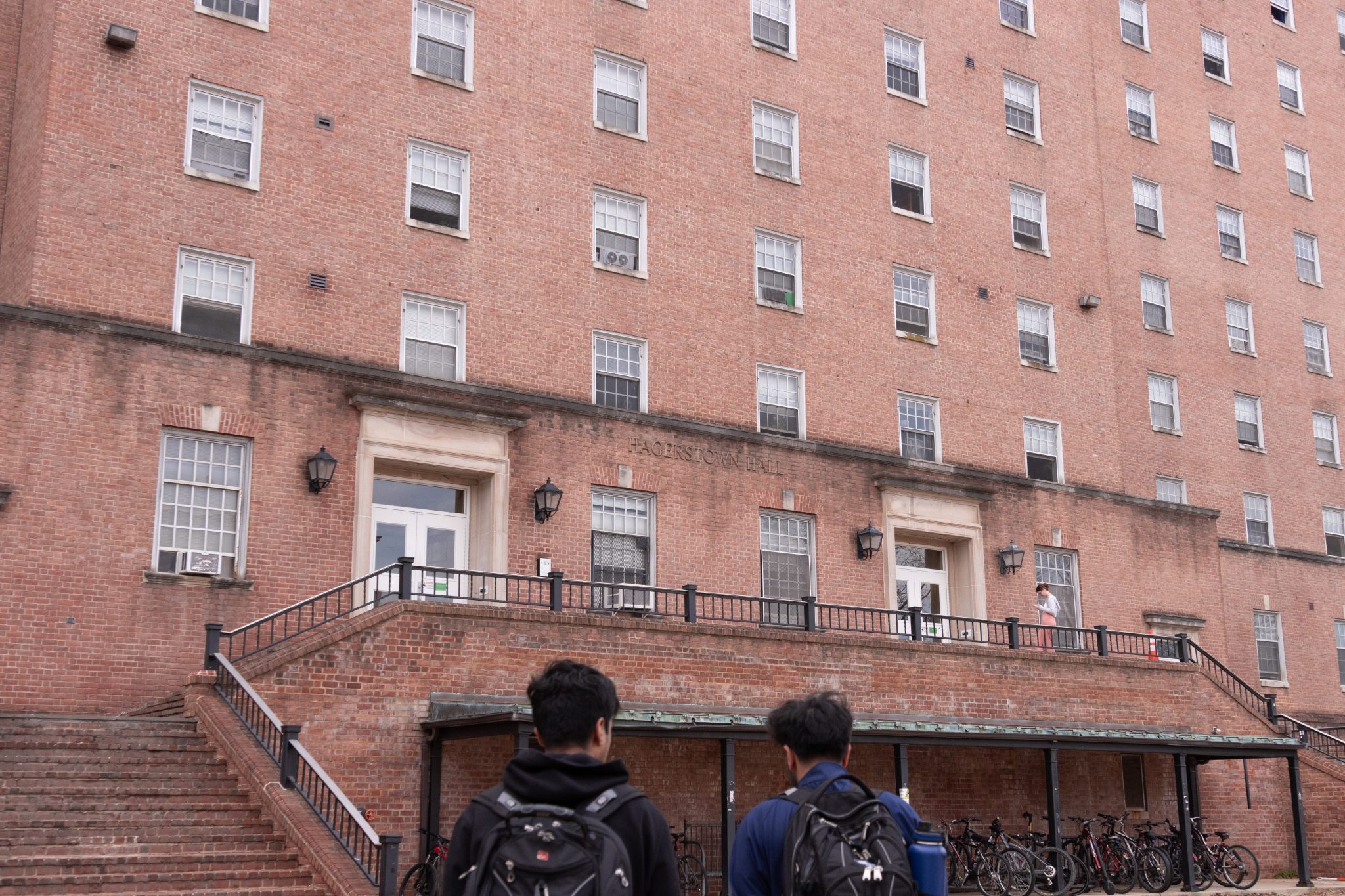Transgender students at the University of Maryland voiced frustration over the limited availability of gender-inclusive on-campus housing for fall 2024.
Sou Chen, a freshman enrolled in letters and sciences, changed his gender marker in this university’s Testudo system from female to male this academic year. But he didn’t anticipate that the change would mean losing the chance to live with his current roommate again next year, Chen said. He and other students called for greater transparency in housing policies at this university after negative experiences with the selection process.
Chen planned to live with his current roommate — who is a cisgender woman — and two others in a gender-inclusive quad, he said. Despite having a time slot on the first day of the housing selection process, there were no gender-inclusive quads left by the time he logged on, Chen said.
“We crowded around my computer because I had the earliest time. We reloaded the page right when it struck and it was like ‘oh there’s no rooms available,’” Chen said. “I was just staring at it in disbelief. I was like, ‘are you kidding? Is this a joke?’ We didn’t even get a chance.”
[UMD students say commuter buses are overcrowded, unsafe]
Chen felt his options were severely limited. Because a minimum of four people are typically required to secure gender-inclusive units in semi-suites, suites and apartments, he couldn’t opt for fewer roommates. Changing his gender marker to male meant he couldn’t share a non-gender-inclusive double with his current, female roommate.
According to this university’s Department of Resident Life, students who choose gender-inclusive housing share a room and private bathroom with any roommates regardless of sex, gender or gender identity. This university said there were 144 four-person units available to students during this university’s most recent housing selection process.
Chen said his best options were to share a double in Denton Hall with a random roommate or take a single in Hagerstown Hall.
After numerous emails and phone calls to Resident Life, Chen and his roommates secured a quad in Oakland Hall.
He’s happy it worked out, he said, but the process was “definitely stressful” — a sentiment other students at this university have expressed.
Michael O’Shea, a freshman English and journalism major, also wanted to live in a gender-inclusive quad next year with three roommates who are cisgender women.
Like Chen, when O’Shea checked the portal for available rooms, there were no four-person options left. Their group decided to split in half, but ran into issues when they found out about the four-person minimum for gender-inclusive units, which sparked confusion during the housing process, O’Shea said.
The four-person minimum rule adds unnecessary barriers to housing for LGBTQ+ students, O’Shea said.
“There are ways they could open it up and have more gender-inclusive units for smaller groups, because not everybody knows four people that they want to room with,” O’Shea said. “It’s very restricting.”
When O’Shea became a student at this university, she spoke with employees in Resident Life who said they would let her live with a friend in a regular Elkton Hall double.
But Resident Life would not make those same accommodations this year after O’Shea struggled to find housing, she said. They will live with a random roommate in Denton Hall next year.
“It’s just been a very, very annoying process and frustrating process,” O’Shea said.
In a statement to The Diamondback, Resident Life said its team worked directly with students who experienced gender-inclusive housing selection issues to manually assign them to on-campus housing. Resident Life’s assignments team is exploring future options to help students select mixed-gender housing regardless of their group size, the statement read.
O’Shea and Chen both said they hope to see increased transparency from Resident Life about gender-inclusive housing policies so other students don’t have to experience the same challenges with housing selection.
“I shouldn’t have to call or email just to get basic information about the gender-inclusive housing program,” O’Shea said.
Mars Delehant, a freshman economics and government and politics major, also said it was hard for him to find easily accessible information about gender-inclusive housing when he was an incoming student in fall 2023.
“I don’t really think it was made available without really looking into it as much,” Delehant said. “I think that it definitely took some digging to find someone to give me an answer.”
[UMD Muslim students share mixed feelings about Ramadan dining hall accommodations]
Delehant wanted to live with another transgender student in his living-learning program, but the program coordinator told him they could not specifically match LGBTQ+ students together without very explicit requests, he said.
He added that he wishes there was a way to match students for housing based on their gender identities.
Resident Life said in a statement that it is working to develop LGBTQ+ or LGBTQ+-friendly filters for the roommate finder tool. The department is conducting a survey the week of March 25 to all students who participated in the room selection process to formulate improvements for next year, the statement read.
Chen said it would have been nice if the roommate finder tool in this university’s housing portal had an LGBTQ+ or LGBTQ+-friendly filter.
“I know UMD’s a very diverse campus and I’m very appreciative of that because that limits the chances of getting a roommate who does not respect your identity,” Chen said. “That was my biggest fear when I had the chance of having to go for a random roommate.”
Senior staff writer Natalie Weger contributed to this story.



